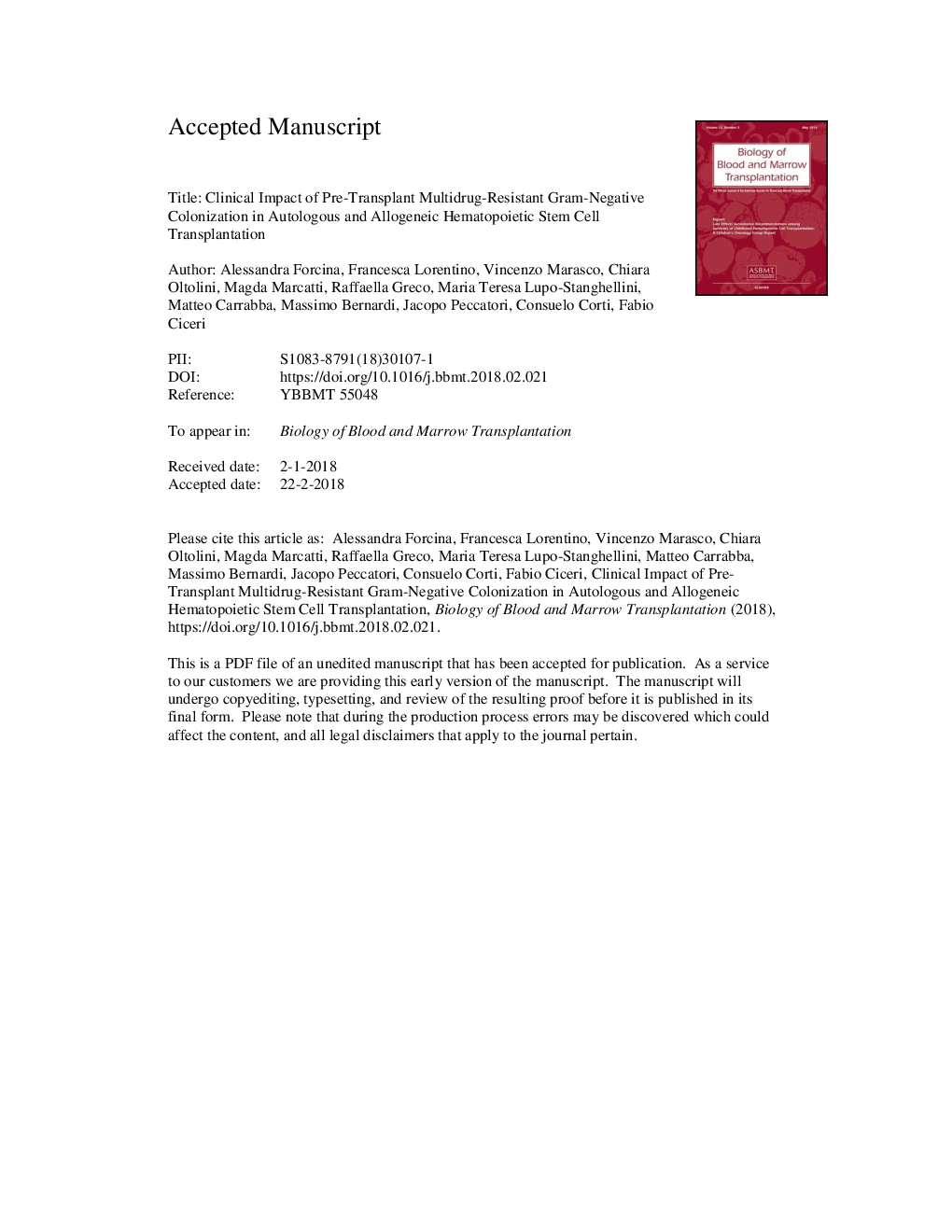| Article ID | Journal | Published Year | Pages | File Type |
|---|---|---|---|---|
| 8429753 | Biology of Blood and Marrow Transplantation | 2018 | 30 Pages |
Abstract
Multidrug-resistant Gram-negative bacteria (MDR-GNB) are an emerging cause of morbidity and mortality after hematopoietic stem cell transplantation (HSCT). Three-hundred forty-eight consecutive patients transplanted at our hospital from July 2012 to January 2016 were screened for a pretransplant MDR-GNB colonization and evaluated for clinical outcomes. A pretransplant MDR-GNB colonization was found in 16.9% of allo-HSCT and in 9.6% of auto-HSCT recipients. Both in auto- and in allo-HSCT, carriers of a MDR-GNB showed no significant differences in overall survival (OS), transplant-related mortality (TRM), or infection-related mortality (IRM) compared with noncarriers. OS at 2 years for carriers compared with noncarriers was 85% versus 81% (Pâ=â.262) in auto-HSCT and 50% versus 43% (Pâ=â.091) in allo-HSCT. TRM at 2 years was 14% versus 5% (Pâ=â.405) in auto-HSCT and 31% versus 25% (Pâ=â.301) in allo-HSCT. IRM at 2 years was 14% versus 2% (Pâ=â.142) in auto-HSCT and 23% versus 14% (Pâ=â.304) in allo-HSCT. In multivariate analysis, only grade III to IV acute graft-versus-host disease was an independent factor for reduced OS (Pâ<â.001) and increased TRM (Pâ<â.001) and IRM (Pâ<â.001). During the first year after transplant, we collected 73 GNB bloodstream infectious (BSI) episodes in 54 patients, 42.4% of which sustained by a MDR-GNB. Rectal swabs positivity associated with the pathogen causing subsequent MDR-GNB BSI episodes in 13 of 31 (41.9%). Overall, OS at 4 months from MDR-GNB BSI episode onset was of 67.9%, with a 14-day attributed mortality of 12.9%, not being significantly different between carriers and noncarriers (Pâ=â.207). We conclude that in this extended single-center experience, a pretransplant MDR-GNB colonization did not significantly influence OS, TRM, and IRM both in auto- and allo-HSCT settings and that MDR-GNB attributed mortality can be controlled in carriers when an early pre-emptive antimicrobial therapy is started in case of neutropenic fever.
Related Topics
Life Sciences
Biochemistry, Genetics and Molecular Biology
Cancer Research
Authors
Alessandra Forcina, Francesca Lorentino, Vincenzo Marasco, Chiara Oltolini, Magda Marcatti, Raffaella Greco, Maria Teresa Lupo-Stanghellini, Matteo Carrabba, Massimo Bernardi, Jacopo Peccatori, Consuelo Corti, Fabio Ciceri,
